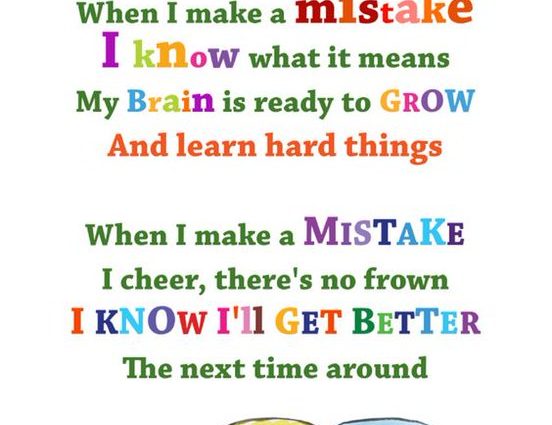Studying should not be too easy or too difficult: in both cases, we will not be able to gain new knowledge. Why is this happening?
How often do we get what we want? Probably, there are lucky ones who practically do not know failures, but these are clearly a minority. The majority of people face various kinds of difficulties every day. Shop assistants are turned down by customers, journalists’ articles are sent back for revision, actors and models are shown the door during casting.
We know that only those who do nothing do not make mistakes, and our mistakes are an integral part of any work or study. Having not achieved what we want, we still receive confirmation that we are active, trying, doing something in order to change the situation and achieve our goals.
We go to achievements, relying not only on talent, but also on the ability to work hard. And yet, victories along this path are almost always accompanied by defeats. Not a single person in the world woke up as a virtuoso, having never held a violin in his hands before. None of us has become a successful athlete, the first time throwing the ball into the ring. But how do our missed goals, unsolved problems and theorems not understood the first time affect how we learn new things?
15% for an excellent student
Science considers failure not only inevitable, but desirable. Robert Wilson, Ph.D., a cognitive scientist, and his colleagues at Princeton, Los Angeles, California, and Brown Universities found that we learn best when we can only solve 85% of the tasks correctly. In other words, this process goes fastest when we are wrong in 15% of cases.
In the experiment, Wilson and his colleagues tried to understand how quickly computers master simple tasks. Machines divided numbers into even and odd, determined which were larger and which were smaller. Scientists set different difficulty settings to solve these problems. So it turned out that the machine learns new things faster if it solves tasks correctly only 85% of the time.
The researchers studied the results of earlier experiments on learning various skills in which animals took part, and the pattern was confirmed.
Boring is the enemy of good
Why is this happening and how can we achieve the optimal «temperature» for learning? “The problems you solve can be easy, difficult, or medium. If I give you really simple examples, your result will be 100% correct. In this case, you will have nothing to learn. If the examples are hard, you’ll solve half of them and still end up learning nothing new. But if I give you problems of medium difficulty, you will be at the point that will give you the most useful information, ”explains Wilson.
Interestingly, the conclusions of American scientists have much in common with the flow concept proposed by psychologist Mihaly Csikszentmihalyi, a researcher of happiness and creativity. The flow state is the feeling of being fully involved in what we are currently doing. Being in the flow, we do not feel the running of time and even hunger. According to Csikszentmihalyi’s theory, we are happiest when we are in this state. And it’s also possible to get “into the stream” during your studies, subject to certain conditions.
In the book «In Search of the Flow. Psychology of involvement in everyday life» Csikszentmihalyi writes that «most often people get into the flow, trying to cope with a task that requires maximum effort. At the same time, the optimal situation is created if the right balance is achieved between the scope for activity and the ability of a person to complete the task. That is, the task should not be too easy or too difficult for us. After all, “if a challenge is too difficult for a person, he feels dejected, upset, worried. If the tasks are too simple, on the contrary, it relaxes and starts to get bored.
Robert Wilson explains that the results of his team’s study do not mean at all that we should aim for «fours» and deliberately reduce our result. But remember that tasks that are too simple or too difficult can reduce the quality of learning, or even completely nullify it, is still worth it. However, now we can proudly say that they really learn from mistakes — and faster and even with pleasure.










